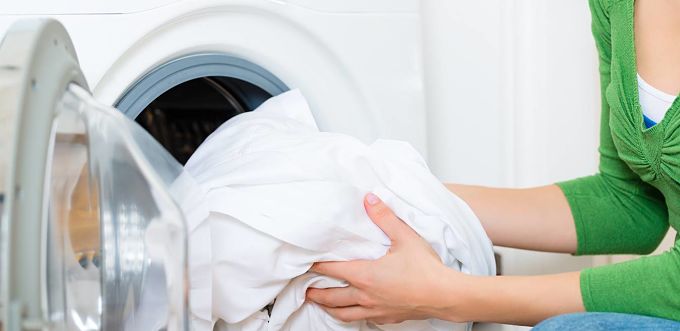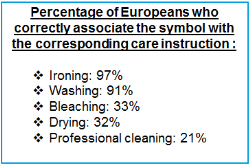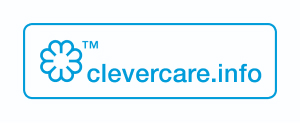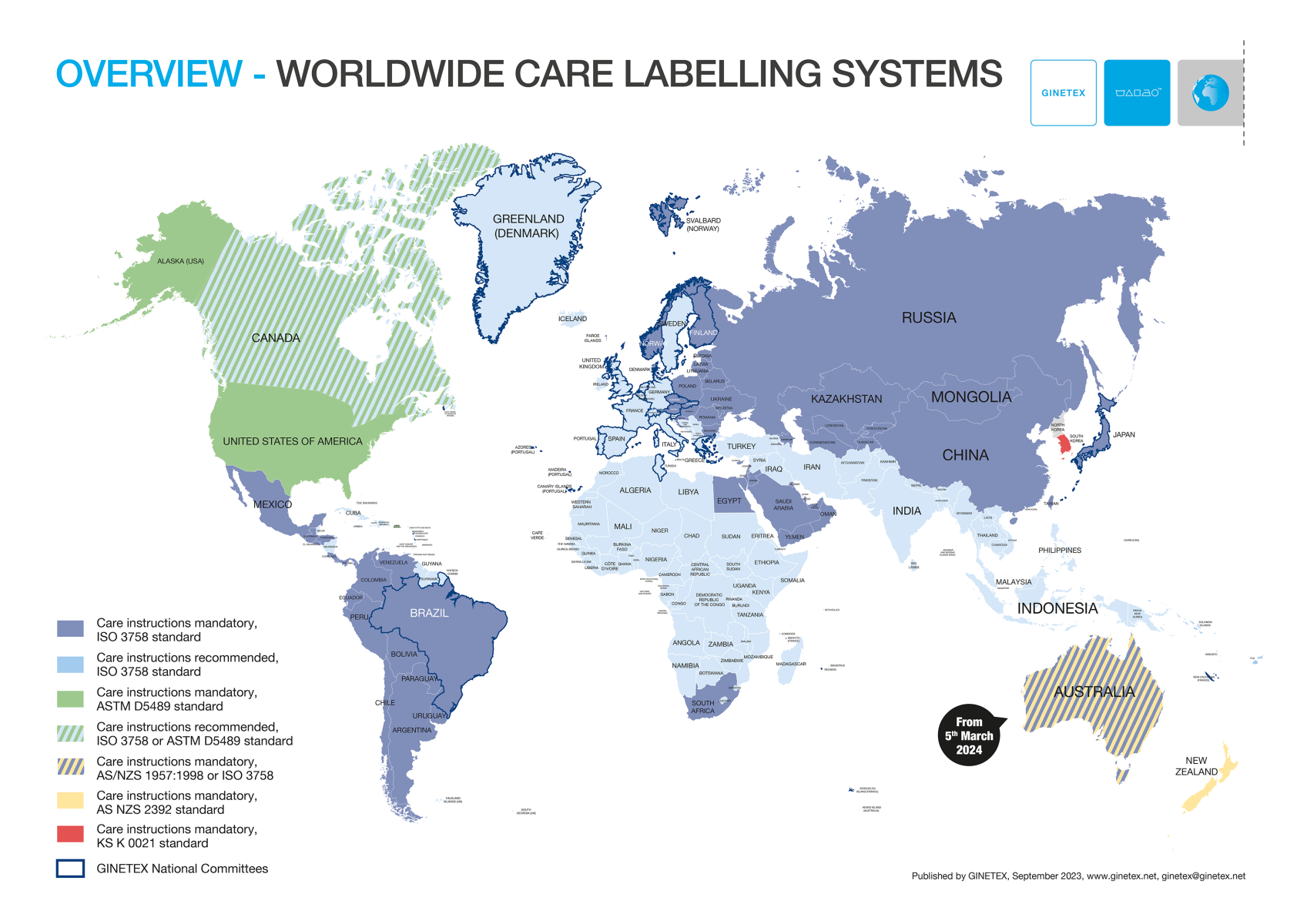A barometer for Textile care labelling in Europe
IN PARTNERSHIP WITH IPSOS, GINETEX PRESENTS THE OUTCOMES OF ITS EUROPEAN BAROMETER: "EUROPEANS AND TEXTILE CARE LABELLING"

70% of Europeans follow the textile care instructions featured on the labels and
80% admit that they would not (or would rarely) buy clothes without any labels,
While another 84% feel concerned by water and energy savings.
GINETEX, the international Association for Textile Care Labeling, called upon the French market research company IPSOS, to evaluate the behavior of European Consumers with regards to textile product labels and care symbols. This study, carried out in December 2016, combines the results of six different countries, gathered from a sample of 6,000 people in Germany, England, France, Italy, the Czech Republic and Sweden.
This IPSOS study reveals that 70% of Europeans follow the textile care instructions represented by the symbols. At a pan-European level, 57% even admit that they follow them 'often' and 13% do so 'always'. These figures illustrate the importance of care instructions in the minds of European consumers.
- 38% state that they follow these instructions in order to avoid washing problems such as shrinking, in the first place
- 31% follow them in order to preserve their clothes and keep them longer, as a second reason
Overall, Europeans consider labels as too cumbersome and 62% admit cutting them out: for 74% of them, the labels itch and irritate their skin and for another 55%, they are often too long and uncomfortable. These results can differ from one European country to another.
However, the presence of the label is a real purchasing criterion since 80% of Europeans state that they would never or rarely buy a piece of clothing without a label.
Internet and smartphones: true virtual partners for textile labels
Here's from a positive perspective: when solving a specific washing issue or when faced with symbols that they don't understand, 53% of respondents are curious about their meaning and automatically look them up on the Internet: 39% use a computer and 21% use their smartphone.
Ironing and washing symbols are the most recognized by Europeans!
The study reveals that the ironing and washing symbols are the ones that are best understood by our neighbors: scoring respectively 97% and 91%.
|
The three other symbols remain unclear to consumers:
The same is true for special features such as underscores under the symbols, noticed by only 1 out of 4 Europeans.
|
 |
Eco-care, a major issue for European consumers!
The IPSOS study reveals that 84% of Europeans feel concerned about water and energy savings. And among Europeans who feel concerned, 90% take specific eco-actions when caring for their textile products.
It is worth mentioning that European consumers already seem to adopt the proper eco-habits when caring for their textiles.
- 62% choose "natural drying as soon as possible"
- 61% do "mainly low temperature washes"
- 44% use the "Eco program"

GINETEX values eco-caring for textiles, in particular via its clevercare.info logo, already used by a number of major international brands, in addition to the 5 textile-care symbols. With its own site dedicated to the general public, this logo's objective is to raise awareness and to inform consumers about the simple and easy actions to adopt for textile eco-caring.
"The results of this GINETEX-IPSOS barometer are positive and encouraging. They reflect the fundamental role of GINETEX and that of our international committees who work to increase the understanding of textile care symbols. Our mission is to work on a long-term basis - an effort also confronted with obstacles such as the misinterpretation of symbols and the removal of labels. Together with our member brands, we must continue to reinforce our actions with the general public to ensure all our symbols (and special features) are understood by all, throughout the world. Our permanent goal of standardizing and harmonizing our textile care labeling system worldwide contributes to this improvement every day", says Adam Mansell, President of GINETEX.
Study Methodology:
In this study, a sample of 6,000 people from Ipsos' Online Access Panel, aged between 18 and 65 and representative of the European population was surveyed for the following countries: Germany, Great Britain, France, Italy, the Czech Republic and Sweden. The survey was conducted online in December 2016.
About GINETEX
GINETEX, the International Association for Textile Care Labelling, was first founded in Paris in 1963 following several international Symposiums for Textile Care Labelling at the end of the 1950’s. GINETEX has devised an internationally applicable care labelling system for textiles based on symbols. The pictograms used are registered trademarks and are the GINETEX property. The care labelling system gives consumers and textile companies the correct information on the care treatment of textile products. The processes indicated by the symbols will avoid any irreversible damage to the product. GINETEX is composed by 22 national organisation members. These organisations represent all interested parties concerned with textile care and labelling.
GINETEX Contact
Pascale FLORANT
Secretary General
+33 (0)1 47 56 31 71
News
GINETEX NEW PRESIDENT – On November 8th 2024, Adam Mansell has been appointed as GINETEX President for a 2-year period starting January1st 2025. He is the CEO of the UK Fashion and Textile Association (UKFT).
ISO 3758:2023 STANDARD HAS BEEN PUBLISHED
December 6th ,2023 – ISO 3758:2023 standard has been published, Textiles – Care labelling code using symbols.
This fourth edition cancels and replaces the third edition (ISO 3758:2012) technically revised.
RESULTS OF THE 4th IPSOS EUROPEAN BAROMETER 2023
What are the textile care habits in Europe ?
A NEW PRESIDENT FOR GINETEX
Mr. Thomas Lange, from German Fashion Association, has been appointed President of GINETEX for 2 years starting 1 January 2023.
RESULTS OF THE 3rd IPSOS EUROPEAN BAROMETER 2021
Environmental concerns are now central to Europeans’ new textile care habits.
BREXIT: IMPACT ON TEXTILE LABELLING
Textile labelling requirements in the UK will change starting 1st January 2021. Here are the main new requirements.
THE CHARTER FOR SUSTAINABLE CLEANING
A.I.S.E. presents first products which comply with the renewed detergents industry sustainability standard and relaunched its cleanright.eu platform.
A NEW PRESIDENT FOR GINETEX
Mr. Alejandro Laquidain, from Consejo Intertextil Español, has been elected President of GINETEX for 2 years starting 1 January 2021.
CLEVERCARE.INFO - A REVAMPED WEBSITE!
Enhanced with new sections, the aim of this new website is to become the reference in textile eco-care for consumers.
RESULTS OF THE 2ND IPSOS EUROPEAN BAROMETER 2019
One of the main findings is that durability of clothing is at the heart of Europeans’ interests, who wish to keep their garments for as long as possible.
HOW TO CLEAN A FABRIC FACE MASK
In the time of Covid-19, GINETEX gives you the main recommendations on how to take care for your fabric face mask.
GINETEX SIGNS THE UN CHARTER
By signing the UN Fashion Industry Charter for Climate Action, we continue our commitment to make consumers and brands aware of the changes necessary to decrease the impact of the textile and Fashion industry on the environment
SUSTAINABLE TEXTILE CARE
Clervercare.info, a full marketing program aimed at end-customers. Discover more with our video and comic strips!
A NEW PARTNERSHIP
GINETEX is now member of the Sustainable Apparel Coalition – Both of our international organizations are teaming up for a better world!
JOINT INDUSTRY ANNOUNCEMENT
A.I.S.E., APPLiA & GINETEX are publishing their joint tips for sustainable laundering.
A BAROMETER FOR CARE LABELLING
GINETEX, in partnership with IPSOS, unveils the outcomes of its European barometer "Europeans and textile care labelling".
THE EXTENDED PRODUCER RESPONSIBILITY (EPR)
France: The AGEC Law imposes, from January 1st 2022, the affixing of TRIMAN signage and info-sorting on products such as clothing textiles, household linen and footwear.
National Members
Video
GINETEX has developed an internationally applicable logo for sustainable care. Consumers are given information to help them reduce the environmental impact of caring for textile.





